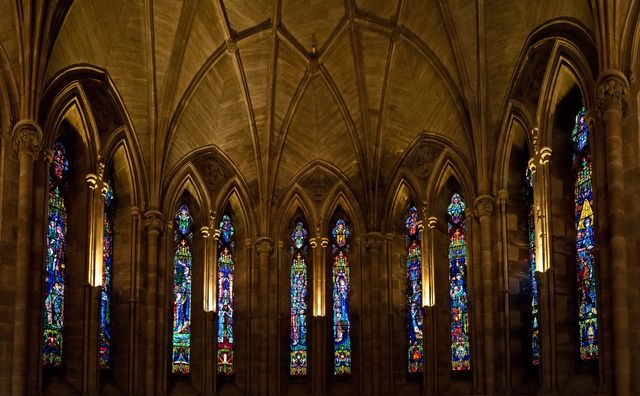
When you read descriptions on how to do a contemplative prayer practice, most of them begin with words like this: Find a quiet place. Close your eyes. Enter the silence and quiet your mind.
Silence is a part of almost every contemplative practice.
For many of us, it is hard to get beyond the first words. It is difficult to find a quiet place. I am writing these words in the last moments of darkness, right before dawn. It is one of my favorite times of the day, and one of the reasons is the silence. It is here waiting for me every morning. I do not have to seek it or look for it. And I know that the rest of my day will not offer me these moments of silence. If I want to experience silence, I will have to practice it intentionally.
Especially in the world in which we live, it is not easy to sit silently and watch the world around us. When you see people sitting alone, often they are not watching the world around them. They are looking at their phone or listening to music or a podcast. Yes, there can be great benefit from these activities. But there is something to be said for sitting and welcoming the silence.
Or could it be that the silence is welcoming you.
The Quaker tradition places a lot of emphasis on silence. Often, instead of talking about being silent, they will speak of holding the silence. You hold the silence gently in your soul, like a baby bird or a precious gift. You honor it by giving it your attention. The Quakers also speak of being held by the silence. More than just stopping your noise and chatter, silence is a place; it is something you enter into and experience fully.

All of us can think of times we have seen couples, or whole families, sitting at a restaurant, each of them looking at their phones. They are not talking, and they are not being together in the silence. But here is another restaurant scene. A couple sitting together. They look at each or they eat together, but they do not speak. But you can tell that they are connected. Even in a crowded setting, the silence between them brings them together.
The Biblical story suggests that silence plays an essential role in our experience of the presence of God.
There is a lot happening is Psalm 46.
We hear words about waters roaring and foaming and mountains trembling. We hear about nations in an uproar and kingdoms tottering. There is talk of wars, spears, and shields. So it almost startling when the psalmist gives us a way to respond to all that is happening, in the previous verses and in our world today.
Be still and know that I am God.
Silence gives us a perspective. There is much that is happening in the world. Be still. I am in charge. I will give you the wisdom to respond.
There is also a lot happening in Habakkuk 2.
The prophet speaks of plundering and bloodshed and violence. We hear about people who look out only for themselves at the expense of others. Again, it is almost startling when the prophet gives us a way to respond to all that is happening, in the previous verses and in our world today.
The Lord is in his holy temple. Let all the earth keep silent before him.

There is much that is happening in the world. There is much that is happening in your own heart and the hearts of those around you. Be silent. In the silence you will find the wisdom to respond.
When you think of Jesus’ ministry, you picture a whirlwind of action.
Mark makes it an essential feature in his gospel with his constant use of the phrase, “And immediately.” And immediately Jesus left here and went to another place. The Gospels record the words and actions of Jesus during a ministry that lasted anywhere from one to three years.
And yet, there are these moments sprinkled throughout that speak of Jesus getting up early and going alone to private place. Could it be that he is following the words of the psalmist and the prophet? Could it be that in these moments, he gets a sense of who God is in his life and how God wants him to be in the world?
We are very much in the world, and the world is very much in us. There is nothing wrong with that. After all, Incarnation, God in the world, is a central tenet of the Christian faith. Jesus sought to display the presence of God while living deeply in the world. We are called to do the same.

And yet, we can be too much in the world, and the world can be too much in us. In those moments, we need another perspective. We need a fresh look at life around us and life within us. The spiritual practice of silence can give us this fresh look and perspective. Silence increases our capacity for contemplation.
Consider the etymology of the word ‘contemplation.’ It comes from the Latin word contemplatio, ultimately from the Latin word templum, a piece of ground consecrated for a building of worship. The root tem– (“to cut”) carries the notion of a place reserved or cut out. Silence gives the space we need to attend to the deeper matters of the heart.
In my next post, I will consider some specific ways that we can give expression to the spiritual practice of silence. For now, I welcome your initial reflections on silence.

A good word – Thanks Gary.
Thanks, Mike, for reading and responding. More to come in the next post.
I certainly struggle with silence, because rarely does my brain really shut down. So there is almost always an “inner voice”. I was doing more guided meditations and decided to start doing more silent ones. I have found that over time, my mind will quiet down (somewhat). They say that if prayer is talking to God then meditation is listening (for that small still voice).
Yes, the mind, the inner voice is always talking. Silence can give you the space to hear the inner voice without getting caught up in what the voices are saying. There is the mind talking, and there is a ‘you’ that is hearing and experiencing the mind talking. That space gives you a chance to respond differently.
Thanks for sharing sis.
I think I have been “too much in the world and the world too much in me” lately. I love the silence. I need to get back to welcoming it more frequently. Thank you for this post, Gary. I look forward to the next one.
Thanks for reading and responding Jan. I look forward to sharing more in days ahead.
I crave silence, and spend 30 mins to an hour in the early morning hours in silence. i can hear myself, and connect to my breath which allows me to feel grounded more easily in silence. i think there is much to learn in silence. i look forward to seeing what practices you have to share and explore.
How striking, Ashley…that you rise from sleep-a time which contains silence-to enter into an intentional time of silence. Which means silence is more than just the absense of noise. There is something waiting for you there. Thanks for sharing.